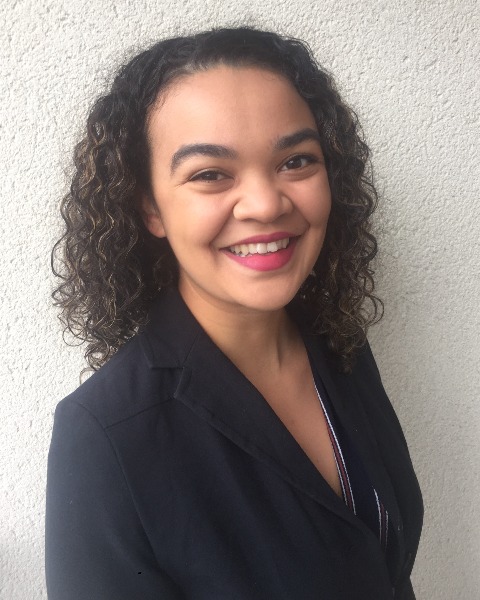Advocacy Project
Program: Section on Minority Health, Equity and Inclusion
P3.P305: Medicine for Tomorrow: A Novel Program Inspiring Underrepresented Youth to Pursue Careers in Medicine
Sunday, September 29, 2024
4:30 PM - 5:30 PM EDT
Location: Poster Hall: Hyatt Regency Orlando, Plaza International Ballroom
Background: The majority of US medical students come from the top income quintile, and underrepresentation of Blacks, Hispanics, American Indian and Alaskan Natives within the medical field continues to have a concerning impact on health equity. Multiple studies have reported that STEM programs lead to an increased interest in STEM careers. Medicine for Tomorrow (MFT) is an organization founded in 2023 by University at Buffalo Pediatric Residents that works to inspire underrepresented youth to pursue medical careers through interactive workshops.
Project Description: Medicine for Tomorrow has created three unique engaging workshops and recruited and trained 35 healthcare trainees on delivery of these workshops. These healthcare trainees include medical, nursing, and dental students. The three workshops last 1 hour each. A workshop on CPR allows the children to learn about resuscitation and practice on CPR models. A workshop on bleeding and lacerations allows children to practice bandaging and packing wounds. Finally, a session on basic medicine has children practicing using stethoscopes, reflex hammers and pen lights. These workshops are tailored to different age groups and are adaptable for children aged 5-18 years old.
Discussion: This resident-led organization has provided workshops at 6 different local community groups and taught >350 students from various backgrounds. 68% of the students taught were under 12 years old whereas the remaining 32% were 13 and older. There was a diverse population of students receiving these workshops with the majority being Black (42%), Asian (16%) and Caucasian (14%). Preliminary results demonstrated an increased interest in medical careers after participating in a MFT workshop. Prior to these workshops 52% of participants had an interest in medical careers whereas after the workshops 71% had an interest in medical careers. Interestingly, when the data was stratified by age it was found that the younger age group (12 years old and younger) had a larger increase in interest in medical careers when compared to the older age group (over 12 years old). The survey also showed an improvement in familiarity with medical equipment. After participating in the workshop more students were familiar with a stethoscope, a reflex hammer and CPR. Lastly the results showed that all participants, regardless of interest in medicine, would recommend these workshops to their peers.
Conclusion: MFT workshops foster interest in medical topics and careers among underrepresented minority youth. These workshops have been shown to improve familiarity with medical equipment among its attendees. MFT has had an overwhelmingly positive response and all students who participated found these workshops to be beneficial. Next steps for this organization include linkage of interested youth with longitudinal STEM training and mentorship programs in the community.
Project Description: Medicine for Tomorrow has created three unique engaging workshops and recruited and trained 35 healthcare trainees on delivery of these workshops. These healthcare trainees include medical, nursing, and dental students. The three workshops last 1 hour each. A workshop on CPR allows the children to learn about resuscitation and practice on CPR models. A workshop on bleeding and lacerations allows children to practice bandaging and packing wounds. Finally, a session on basic medicine has children practicing using stethoscopes, reflex hammers and pen lights. These workshops are tailored to different age groups and are adaptable for children aged 5-18 years old.
Discussion: This resident-led organization has provided workshops at 6 different local community groups and taught >350 students from various backgrounds. 68% of the students taught were under 12 years old whereas the remaining 32% were 13 and older. There was a diverse population of students receiving these workshops with the majority being Black (42%), Asian (16%) and Caucasian (14%). Preliminary results demonstrated an increased interest in medical careers after participating in a MFT workshop. Prior to these workshops 52% of participants had an interest in medical careers whereas after the workshops 71% had an interest in medical careers. Interestingly, when the data was stratified by age it was found that the younger age group (12 years old and younger) had a larger increase in interest in medical careers when compared to the older age group (over 12 years old). The survey also showed an improvement in familiarity with medical equipment. After participating in the workshop more students were familiar with a stethoscope, a reflex hammer and CPR. Lastly the results showed that all participants, regardless of interest in medicine, would recommend these workshops to their peers.
Conclusion: MFT workshops foster interest in medical topics and careers among underrepresented minority youth. These workshops have been shown to improve familiarity with medical equipment among its attendees. MFT has had an overwhelmingly positive response and all students who participated found these workshops to be beneficial. Next steps for this organization include linkage of interested youth with longitudinal STEM training and mentorship programs in the community.

Danika Cziranka-Crooks, MD
Pediatrician
Ellicottville, New York

